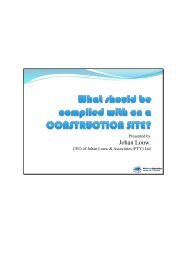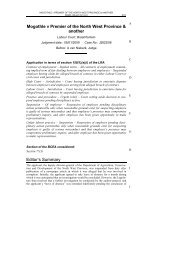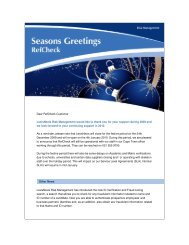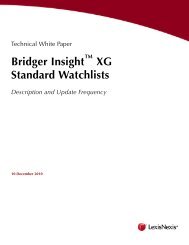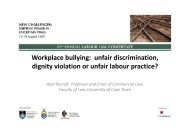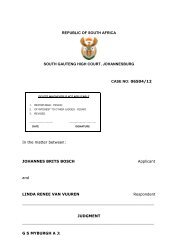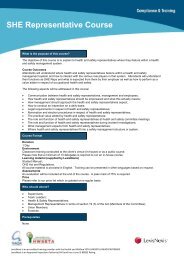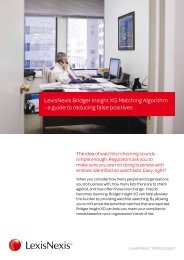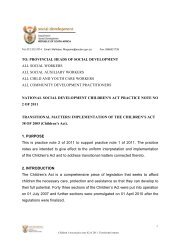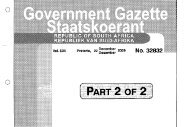Makhanya v University of Zululand - LexisNexis South Africa
Makhanya v University of Zululand - LexisNexis South Africa
Makhanya v University of Zululand - LexisNexis South Africa
You also want an ePaper? Increase the reach of your titles
YUMPU automatically turns print PDFs into web optimized ePapers that Google loves.
8ordinary power to consider claims to enforce a constitutional right arisingfrom employment (the claim that was made in Chirwa) 15 and in that contextit was suggested that the use <strong>of</strong> the word ‘concurrent’ in s 157(2) might havebeen unfortunate. 16 That suggestion might be founded upon a misconceptionand I do not think it can be correct.[15] The section so far as it is now relevant reads as follows:‘157 Jurisdiction <strong>of</strong> Labour Court(1) Subject to the Constitution and section 173, and except where this Act providesotherwise, the Labour Court has exclusive jurisdiction in respect <strong>of</strong> all matters thatelsewhere in terms <strong>of</strong> this Act or in terms <strong>of</strong> any other law are to be determined by theLabour Court.(2) The Labour Court has concurrent jurisdiction with the High Court in respect <strong>of</strong>any alleged or threatened violation <strong>of</strong> any fundamental right entrenched in Chapter 2 <strong>of</strong>the Constitution <strong>of</strong> the Republic <strong>of</strong> <strong>South</strong> <strong>Africa</strong>, 1996, and arising from –(a) employment and from labour relations…’[16] It is important to bear in mind that s 157(2) does not purport to conferjurisdiction on the high courts. The power to consider claims for the allegedviolation <strong>of</strong> constitutional rights, whether in the employment sphere orotherwise, is assigned to them by the Constitution. Section 157(2) does nomore than to confer equivalent jurisdiction upon the Labour Court.[17] A statute that confers power on a special court might <strong>of</strong>ten sayexpressly that it is to be exercised ‘concurrently’ so as to remove ambiguity.But in s 157, in which the conferring <strong>of</strong> exclusive and concurrent jurisdictionis dealt with in separate subsections, there is no room for ambiguity, and theword ‘concurrent’ is superfluous. A construction <strong>of</strong> subsection (2) that15Paras 122-123.16Paras 121 and 122.




